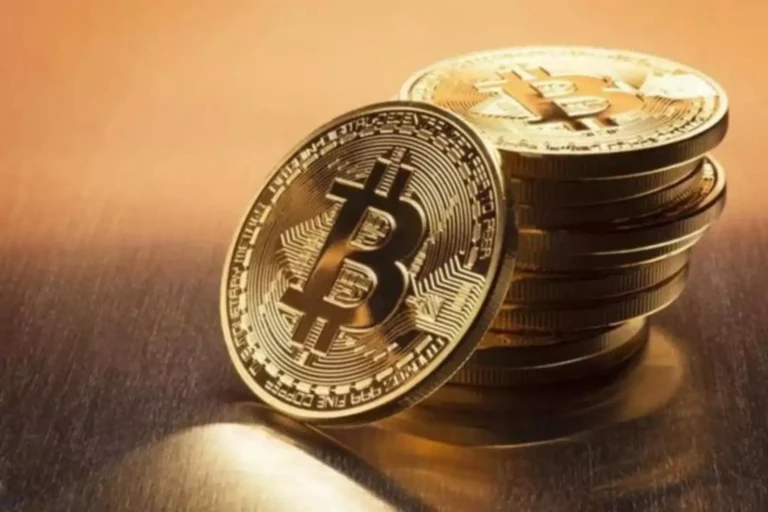Therefore, it’s important to back up your wallet.dat file and keep it in a safe place. Alternatively, you can export the corresponding private key or seed phrase. This will allow you to access your funds on other devices if your computer stops working or becomes inaccessible. The wallet also contains an address, which is an alphanumeric identifier generated based on the public and private keys. Such an address is essentially a specific «location» on the blockchain to which coins can be sent. This means that you can share your address with others to receive funds.
- The implication here is that users must trust the service provider to securely store their tokens and implement strong security measures to prevent unauthorised access.
- For the extremely risk-averse, there are ways to gain exposure to cryptocurrencies via traditional financial markets that provide third-party custody, usually through a broker.
- With a crypto wallet, you can enter the exciting world of blockchain technology and begin exploring various decentralized applications.
- The best practice to store cryptocurrency assets that do not require instant access is offline in a cold wallet.
- Crypto wallets should have the feature for automatic calculation of transaction fees in accordance with the consistently changing conversion rates.
- You should protect a hardware wallet just as you would protect any other valuable personal item.
As with any type of currency, cryptocurrency can be accumulated and used for any number of different purposes and transactions. A crypto wallet (cryptocurrency wallet) is software or hardware that enables users to store and use cryptocurrency. Cryptocurrencies are digital assets designed to work as a medium of exchange that uses cryptography to secure their transactions and to control the creation of new units.
Here’s Why You May Want to Put Off a Personal Loan Until 2024
A crypto wallet doesn’t hold cryptocurrency, but rather holds the privileged credentials needed in the form of private keys to access the blockchain for a given cryptocurrency. Crypto holdings exist on the blockchain and are only accessible via a private key proving your ownership of the currency. Cryptocurrency wallets play a vital role in safeguarding your valuable investments and protecting them from hackers and cyber attackers. Securing your crypto assets is paramount in the rapidly evolving landscape of cryptocurrencies. Our next blog will help you explore different types of crypto wallets. Cryptocurrency wallets serve as gateways to access your cryptocurrency holdings.
Instead of share price, these wallets show the number of digital assets held and the portfolio value. The outline of the important crypto wallet characteristics offered a comprehensive list of reasons to choose one now. However, wallets claiming the facility of recent features crypto wallet should be subject to scrutiny before you invest in crypto assets. Crypto wallets are more than just a collection of public and private keys in the existing ecosystem. You can also use them to achieve multiple benefits in accessing the potential of cryptocurrencies.
How To Get A Crypto Wallet
At Kraken, we consider self-custody a vital part of being a good crypto user. Though each type works slightly differently, they are all designed to provide secure access to any cryptocurrency you own. Some new hardware wallets come with the ability to connect to your device through Bluetooth. Use these with caution because Bluetooth is a wireless signal that can be accessed by unwanted parties when it is turned on. Find a few crypto wallet types that work for you and offset risk by diversifying where you store your assets. All of these factors contribute to why you need a crypto wallet for crypto investments.

They can forget the combination or a thief who found it written down could access the gold. To avoid such anxiety, this kind of person would outsource crypto storage to a third party and have a custodial wallet, though that brings the risk of government confiscation. Anyone with the seed phrase is able to gain full control of the funds held in that wallet. In a case scenario where the seed phrase is lost, the user also loses access to their funds. So it is imperative to keep the mnemonic phrase in a secure location, and to not store a digital copy of it anywhere. There are different reasons why a market participant might want their cryptocurrency holdings to be either connected to or disconnected from the Internet.
How to Choose the Right Crypto Wallet for You
When used on a clean and cared-for system, these wallets are known to be reliable for many crypto owners. Please note that the availability of the products and services on the Crypto.com App is subject to jurisdictional limitations. Crypto.com may not offer certain products, features and/or services on the Crypto.com App in certain jurisdictions due to potential or actual regulatory restrictions. The purpose of this website is solely to display information regarding the products and services available on the Crypto.com App. It is not intended to offer access to any of such products and services.

The public key is similar to the bank account number you can provide to an organization or individual for receiving cryptocurrency. On the other hand, the private key is similar to the PIN code you use for debit cards. The confirmation of every transaction with a private key ensures authentic transactions.
Aspiring Influencers: Don’t Lose Sight Of These Six Simple Truths About Social Media
A hot wallet has a connection to the internet or to a device that has a connection, and a cold wallet has no connection. Lastly, there are three subcategories of wallets—software, hardware, and paper. Sending and receiving cryptocurrency is very easy using these applications. You can send or receive cryptocurrency from your wallet using various methods.
In 2019, hackers stole $40 million of bitcoin in an orchestrated attack that used phishing scams and viruses against the popular Binance exchange. Cryptocurrency wallets store users’ public and private keys, while providing an easy-to-use interface to manage crypto balances. Some wallets even allow users to perform certain actions with their crypto assets, such as buying and selling or interacting with decentralised applications (dapps). Desktop, mobile or https://www.xcritical.com/ web-based applications, these wallets require an internet connection and are both more accessible but also more prone to hacking than cold wallets. The general assumption about cryptocurrency wallets draws similarities between them and physical wallets, implying that crypto wallets store crypto coins and tokens. However, it is important to understand that cryptocurrencies are not stored on smartphones and computers as it would increase vulnerability.